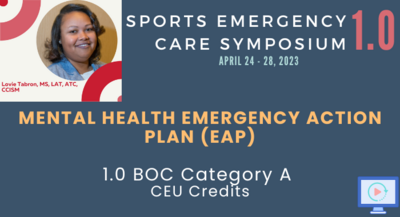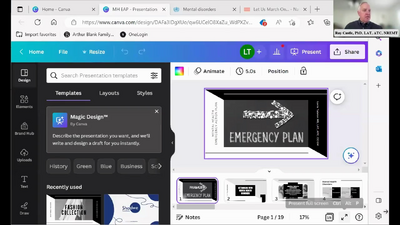AI Chat Bot
Mental Health Emergency Action Plan (EAP) › Learning Material
Presentation (Video)
Updated Jan 22, 2024
Copyright © 2025 Action Medicine Consultants, LLC
___MESSAGE___
___MESSAGE___


